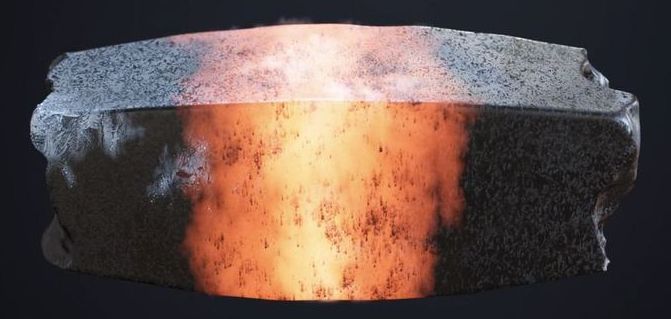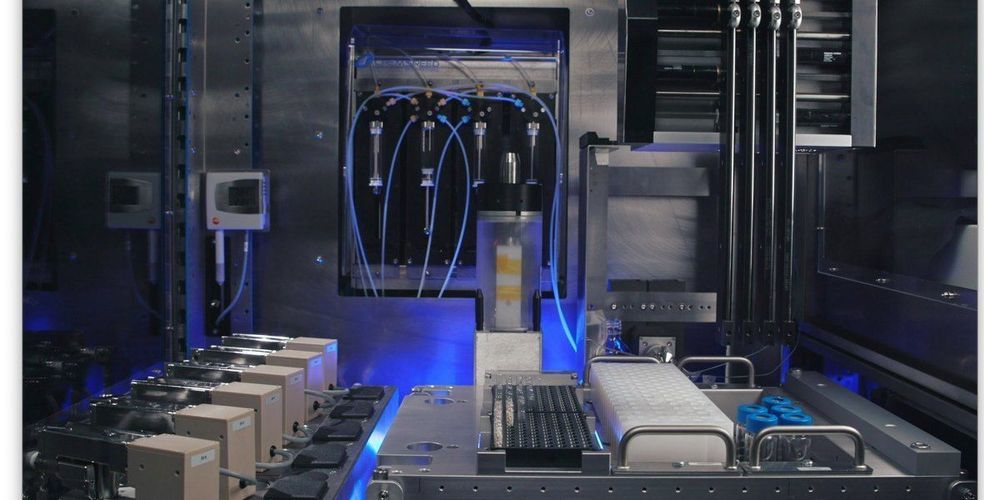Shape memory alloys and a kind of plastic crystal chill quickly under force or pressure. They could lead to eco-friendly fridges and air conditioners.


Autonomous unmanned aerial vehicles (UAVs) have shown great potential for a wide range of applications, including automated package delivery and the monitoring of large geographical areas. To complete missions in real-world environments, however, UAVs need to be able to navigate efficiently and avoid obstacles in their surroundings.
Researchers at Luleå University of Technology in Sweden and California Institute of Technology have recently developed a nonlinear model predictive control (NMPC)-based computational technique that could provide UAVs with better navigation and obstacle avoidance capabilities. The NMPC approach they used, presented in a paper published in IEEE Robotics and Automation Letters, is based on the structure of OpEn (Optimization Engine), a parametric optimization software developed by Dr. Pantelis Sopasakis at Queen’s University Belfast.
“Our team has previously published several works on autonomous obstacle avoidance and navigation for UAVs,” Björn Lindqvist, one of the researchers who carried out the study, told TechXplore. “In our recent study, we set out to extend the notion of obstacle avoidance to include a direct consideration of moving or dynamic obstacles, using NMPC. Our objective was to offer a technical demonstration of how modern and intelligent control structures could allow UAVs to be used in, for example, urban environments where the surroundings are always moving and where collision avoidance is of great importance to ensure the safety of persons and other vehicles.”

A striking new study has found young cancer survivors show high expression of a gene known to be an effective marker of aging. The researchers suggest this genetic biomarker could be used to identify cancer survivors most at risk of later-life frailty due to their treatment.
As we age, concentrations of a gene called p16INK4a gradually increase in our cells, making it a potentially useful molecular marker for aging. One of the gene’s roles is to slow cell division and reduce the proliferation of stem cells.
In a new study researchers set out to investigate p16INK4a levels in pediatric and young adult cancer survivors. The hypothesis was that increased p16INK4a levels could be an effective sign of frailty among young cancer survivors.
This is an excerpt of a conversation between Dr. Daniel Stickler and Brian Rose.
Dr. Stickler is the Medical Director for the Neurohacker Collective, a consultant for Google on epigenetics and AI in healthcare, and a lecturer at Stanford University.
Brian Rose is the founder of London Real, a curator of people worth watching. Its mission is to promote personal transformation through inspiration, self-discovery and empowerment.
CUENTA CON SUBTÍTULOS EN ESPAÑOL
To watch the entire conversation clic here: https://youtu.be/ynbaJ2038K0

Tesla scraps plans for its bargain version of the Model Y.
Elon Musk unveiled Tesla’s mid-size electric SUV, the Model Y, Thursday night in Hawthorne, Calif.
The most-affordable Model Y will have a base price of $39,000 and a 230-mile battery range, but customers will have to wait until at least 2021 to own one of the five-seater SUVs. Tesla will first sell more expensive versions of the Model Y — with prices starting from $47,000 to $60,000, and offering more battery range. Those will ship starting in 2020, according to the company. There are additional charges for Tesla’s autopilot software, a third row of seats and colors other than black. A panoramic glass roof comes standard.
An enthusiastic Musk said on stage he expected Tesla to sell more Model Ys than Model 3s and Model Xs combined. Production of the SUV is supposed to begin next year.

The news: IBM has built a new chemistry lab called RoboRXN in the cloud. It combines AI models, a cloud computing platform, and robots to help scientists design and synthesize new molecules while working from home.
How it works: The online lab platform allows scientists to log on through a web browser. On a blank canvas, they draw the skeletal structure of the molecular compounds they want to make, and the platform uses machine learning to predict the ingredients required and the order in which they should be mixed. It then sends the instructions to a robot in a remote lab to execute. Once the experiment is done, the platform sends a report to the scientists with the results.
Why it matters: New drugs and materials traditionally require an average of 10 years and $10 million to discover and bring to market. Much of that time is taken up by the laborious repetition of experiments to synthesize new compounds and learn from trial and error. IBM hopes that a platform like RoboRXN could dramatically speed up that process by predicting the recipes for compounds and automating experiments. In theory, it would lower the costs of drug development and allow scientists to react faster to health crises like the current pandemic, in which social distancing requirements have caused slowdowns in lab work.
45 seconds with Elon Musk during his BCI demonstration. The excerpt counts with subtitles in Spanish.
Excerpt from the demonstration by Elon Musk of the Brain Computer Interface (BCI) in development progress by Neuralink. The event took place on August 28, 2020.
Cuenta con subtítulos en Español.
To watch the entire demonstration click here: https://youtu.be/iOWFXqT5MZ4

Otto Aviation’s Celera 500L could carry six business passengers at 450 mph at around 20 miles per gallon thanks to a new high-efficiency piston engine.
A new space-aged propeller plane could overtake business jets at a fraction of the running costs.
California-based Otto Aviation claims its prototype Celera 500L can cruise at 450 mph, with a continental range of 4,500 miles.